Health and Fitness Series Dr. KallieEvery few years something new for weightloss pops up and takes the world by storm. The ketogenic diet has been around for thousands of years dating back to Ancient Greek and Indian Physicians. More literature in the early 20th century, around 1912, and again in 1921. All of this research pointed toward Ketogenic Diets helping those with epilepsy. The research is pretty outstanding, especially for the positive outcome in the youth with epilepsy. The keto diet revolution started picking up ground in the 1990's when a Hollywood producer spoke about his son's epilepsy control through the keto diet. In the mid 1990's, a foundation and funding were created to make new discoveries about Ketosis. So what is Ketosis... a metobolic state in which our human bodies no longer have glucose to burn for energy and use fat. The fat ingested and the fat in storage breaks down into fatty acids and are converted into ketones by ketogenesis. I'll spare you the biochemistry of it all, and skip to the understandable stuff. Like I have mentioned in earlier posts, our human bodies are super smart and know how to accommodate a lot of changes. Some changes take a little bit longer then others, so each person may be a little different. Back to ketosis...I'm sure almost all of you are familiar with the Adkins diet or low carb dieting. Well, the keto diet is like Adkins on steroids. You are slashing your carbohydrate intake to almost nothing. Most traditional Keto-dieters try to stay under 5% carbohydrates for their caloric intake, which is roughly 50g or less depending upon your activity level, size, and sensitivity. A nice example is a simple apple or even a banana, one of these babies a day and you might be over your limit for carbs. Let's not forget though, keto diets push the greens/veggies, and they too have carbs. A lot less and mostly fibrous carbs, but you count them. So in all reality, you aren't eating much of any fruit except for a few berries if you are lucky. You are eating Fat, more Fat, and more FAT. You are trying to consume around 75% of your diet as fat. That leaves about 20% to protein. Quick perspective here, a 2000 calorie diet on keto at 80% fat is 1600 of your 2000 in just fat alone. That 1600 calories from fat is anywhere between 140-170g of fat. Above are great representations of our standard American diet, low carb diet, and the classic keto diet. There is a DRASTIC difference in the amount of carbohydrates consumed (blue) between our standard and the keto diet. Here's the evil little problem though, you have to keep your proteins in check while trying to get to keto and stay in keto. See, glucose is the body's preferred fuel for energy. If we no longer have glucose available because we drastically cut out our carbohydrates, then our bodies turn to any excess protein we may have ingested. Believe me when I tell you, it's quite hard to keep those proteins down to only 20% when you are not a "scoop coconut oil out of the jar and eat it" kind of a person. I find eating pure fat kinda gross honestly. Try oil pooling and tell me how much you LOVE coconut oil sloshing around in your mouth for awhile, ick! Back to protein, when you eat more than your body needs for a day, you trigger something called gluconeogenesis. Gluconeogenesis happens when your body converts amino acids (from protein) into glucose (for energy) which then increases your insulin and finally reduces ketones. My last little reminder about the fat consumption is this, watch your calories! Remember our macro counting that calories from fat are 9kcal/g as compared to protein and carbs only being 4kcal/g. Those extra calories add up REALLY fast. So many people think that they are going to be so full from all of the fat they get to eat, not really the case. One pound of bacon is roughly 2000 calories, not to mention 169 grams of protein. Again going back to the old 2000 calorie diet, this means you ate all of your calories in that pound of bacon and went over your protein by 69g. (20% protein in a 2000 calorie diet = 400 calories from protein divided by 4cal/g of protein and you are allowed roughly 100 g of protein) So much for chewing on a few packages of bacon. Now you have a little better idea when someone says they can eat all the bacon and meat they want to....not the case. The protein will shoot you right out of ketosis. This is my major point with the keto diet, it's DARN hard to stick with and I don't think it should be a long term commitment for health reasons. Do I encourage Keto Dieting? yes and no. Yes, I mentioned that it is hard, but what isn't hard that takes work?!?! Eating like crap is easy, but it's not getting you anywhere except into your grave. Let me start by the biggest question, is keto dieting safe? Yes, I feel if done properly with proper guidance and strictly short term, it is safe. The biggest safety factor is ketoacidosis. When there are too many ketones in your bloodsteam, your blood becomes too acidic. Ketoacidosis is the leading cause of death to people with diabetes under the age of 24. Be cautious with any new diet and know your body. Pros and Cons Pros:
Cons:
Left me briefly touch on toxin release. We are exposed to toxins everyday in the food we eat, air we breath, and things we touch. As toxins enter our bodies, they are both excreted out and stored. The toxins take refuge in our fat storage cells. As you start to burn up "old fat' , sort-a-speak, you have an increase in toxins trying to get excreted into your blood stream. Some may not notice this at all, but others can feel it and even see it. A lot of complaints I hear are skin reactions, an increase in acne and other skin irritations. For those that have pretty significant sugar addictions, the process of withdraw can also be pretty rough. Similar to alcohol and drug addictions, your body craves its sugar high. The cravings can be pretty darn harsh for some. Keto-testing Briefly let me touch on the testing portion of this diet. A lot of new comers to the Keto-diet get super excited to buy the testing strips to see how soon they get into ketosis, and if they stay in ketosis. These little strips test the excess ketones in your urine. I don't recommend using them for the diet, and feel that they can be a huge disappointment. Every person is different and will test differently. Results can vary with what time of the day you are testing, when you last ate, and if you just exercised. Ketones are only in the urine when they are spilled over into the blood when you have an excess. Remember, ketones are now an energy source, so if you are expending a lot of energy in a workout, you are using up your excess ketone bodies for fuel. That means you will not get a good reading for the keto strips. They just aren't worth the time, money, and disappointment. The above is a basic list of what is safe to eat to consume on the keto diet. Since the diet has gained so much popularity, many more fun and tasty treats have been created. One of my favorites are the keto bagels. After about the first week, you start to miss the buns on your sandwiches whether they are hamburgers at a BBQ or breakfast bacon, egg, and cheese sandwiches. Some genius started showing the world how easy it is to make bagels/buns out of almond flour, eggs, and cheeses along with some spices of your choice. They REALLY help you keep the diet going. Dark chocolate treats with peanut butter, stevia, and some coconut also help satisfy that sweet tooth now and again. The only warning, is again, watch those calories. The above life savors are pretty high up there in calories.
My experience...of course I decided to give Keto a whirl, honestly to see of I could discipline myself enough to keep it up for a couple of weeks. It was pretty tough at times, but I was super thankful for the millions of pinterest recipes for keto foods. I did have the keto flu for about 4 days in the very beginning, the brain fog and sluggishness were very noticeable. I also dropped a pretty good amount of water weight right away. After the first week, my energy came back and I feel was increased. I no longer had the "carb coma" after a meal. I did struggle a little bit more with body temperature. Staying warm when I was not active was probably the most difficult struggle, but on the other hand, my body heat was turned up when exercising and sleeping. I regularly do low intensity fasting cardio in the mornings, this quickly became a sweat-fest while on the keto diet. I also had an increase in night sweats, that I contribute to a hormonal fluctuation. My weightlifting had it's ups and downs while in Keto. I had some of my best "leg day" lifts in keto, but my upper body lifts suffered. My upper body strength decreased quite significantly plus I struggled with the shakes under the weights. Lastly, the reasons I no longer dapple in keto are because of the side effects I struggled with were more then the benefits. I truly enjoyed the increase in energy and the lower water retention (aka bloatedness), but these weren't enough to sell me. The night sweats, and body temp regulation problems were not fun, but the struggle with weightlifting and the dizziness tapped me out. At one point, my dizziness reached a scary point of not being able to stand up and walk to my kitchen from my living room without grabbing the wall to stop myself from falling over. Again, I do feel this diet can be very beneficial for some people. Those that have significant sugar addiction can likely benefit the most. It's certainly worth a try if you want to test your discipline and reset your metabolism. I think forcing your body to burn fats instead of the constant sugar feed is very beneficial. The first go around with Keto will probably be your most difficult, but also the most noticeable for the positive outcomes as well. Personally I stick to lightly dipping into Keto each morning when I am fasted from my intermittent fasting plus the light cardio. Along with the intermittent fasting, I carb cycle when I am trying to get myself back in check and/or cut. This allows me the benefits of going near keto, but not the struggles of actual keto dieting. Next week I'll bring more info to you about carb cycling.
4 Comments
The following article was published in the Teach-In News, a newsletter penned by Napoleon Hill himself, in the late 1960s. "Napoleon Hill, world-famous author of the book Think and Grow Rich and other books, has highly praised chiropractic for over 50 years.
At the age of 85, Napoleon Hill has a health pattern equaling that of a man half his age. His formula for good health is, 'I eat sparingly, work enthusiastically in a labor of love, love generously, and take chiropractic adjustments once a week whether I need them or not. My son, Blair, was born without ears. The two physicians who brought him into the world warned me that Blaire would always be a deaf mute. I warned them my son would eventually have his hearing 100%. The true story could not be told until the two physicians who brought him into the world had died, because they were Blair's uncles and they objected to the way and method of bringing complete recovery of his hearing. Up to the age of 18 months, Blair could not hear a sound. We had tried every known test and Blair had been examined by many specialists... all who said he would never hear. Then a miracle began to happen. I took Blair to a chiropractor who began giving him adjustments (against the objections of his mother and other relatives). By the end of the first month and after adjustments three times weekly, we knew that Blair was beginning to hear. He would turn his head to listen when I clapped my hands behind his back. The adjustments continued until Blair was 4 years old. By that time, chiropractic had developed 65% of his natural hearing capacity... enough to get him through grade school, high school, and three years in the University of West Virginia. The Acousticion Company, manufacturer of hearing airs, heard about Blair's miraculous improvements in hearing through chiropractic and made a special hearing aid for him which gave him 100% hearing capacity. Blair is living a normal life, thanks to my having stood my ground for chiropractic adjustments when others around me were fighting me and the chiropractor. I began taking chiropractic adjustments along with Blair and I have continued to do so for the past 50 years. Perhaps this explains why, at the age of 85, my annual physical checkup fits perfectly with the health pattern of a man not over 50 years of age. I take chiropractic adjustments regularly... not to get well, but to keep from getting sick. With this public statement, I have paid a long overdue debt which I have owed chiropractic for saving my son from going through life as a deaf mute and myself from being an old man at the age of 85." A truly amazing story about some of the positive changes chiropractic can facilitate. Chiropractic works by gently removing pressure on nerves, allowing your system to heal and adapt properly. While Blair Hill lacked the presence of external ears (or '"auricles"), the internal structures responsible for sound interpretation were still intact. The inner ear structures receive their nerve supply from the portion of the spinal cord located in the neck region. When his chiropractor removed the interference in Blair's spine, the proper connection between those nerves and the organs of his ear was restored, allowing him to hear. "Nature needs no help, just no interference." - B.J. Palmer, renowned author and chiropractor. Fun fact: In May 1922, Napoleon Hill awarded B.J. Palmer with his Golden Rule Medal, for B.J.'s work in chiropractic. Summer Health and Fitness Series As promised last week, today we are working through Intermittent Fasting. This is one of my favorite tools and topics. I LOVE LOVE LOVE intermittent fasting and I can't wait to tell you why. We all know what fasting is basically not eating for a period of time. Intermittent fasting is just pre-planned periods of not eating. If you are even remotely in tune to the health and fitness world, then I am quite certain you have likely heard of IF (intermittent fasting) within the last few years. It's really a thing, a darn popular thing, and it deserves all the recognition that it has been given. IF goes beyond just weight loss, and I'm excited to share those extra details with you. More importantly though, I feel IF is a huge personal discipline that you can control, and makes you feel amazingly successful. Just to quick clarify, IF, may not be for everyone, especially those with serious preexisting health complications. Like everything else, you need to use precaution. Years ago, when I was young, it was preached to us to ALWAYS eat breakfast. "It's the most important meal of the day." I do agree that breakfast is important for our kiddos out there. I would not send the little brain and body of my 8 year old to school without having healthy foods in their tummy. As for adults, the same is not needed on a daily basis. Neither is eating 5-6 small meals a day. Our bodies have NEVER been designed to continually eat throughout the day. Just look into the physiology of our bodies, they are amazingly adaptable. This may be cliche, but our ancestors did not have access to a refrigerator full of food 24-7. They weren't breaking out the Ben & Jerry's at midnight for a little snack. They ate abundantly when food was available, then literally fasted until they hunted for their next meal. Back to my main point here, you will NOT die if you intermittent fast. You may think you are going to die from hunger the first few days, but I assure you that hunger for a few hours will not kill you. INTERMITTENT FASTING PLANS: *ADF (alternate day fasting) Among the above, the Leangains is the most popular and easiest to make into a lifestyle. It is honestly not as hard as it sounds, and I speak from experience. I have been intermittent fasting for almost two years and I absolutely love it. The Leangain is also known as the 16:8, 16 hours fasting and 8 hours of refueling. This schedule is easily adapted to your daily regimen by simply skipping breakfast. (Breakfast aka "break fast") Here is a sample below for the 16:8 schedule. Dependent upon how late you want to eat or how early you need to eat, is how you configure your own schedule. If you work until 7pm and want to go home to have a nice dinner, then your fast can start at 8pm and finish at noon the next day. If you feel you need to eat earlier then noon, you can plan to eat at 10am and be finished eating for the day at 6pm. In the above chart, the orange is your refueling (eating) window. The shaded area is easy fasting since you are asleep. The fasting conscious work goes into the hours you are awake before you break your fast, and the hours following your last meal before bed. In all honesty, IF can be a great tool to help with weight loss, since you are cutting out those sneaking times that you would indulge in extra snacks, like before bedtime. I am not going to lie to you and say it is easy, because it is not easy at all in the initial few weeks/months. It's been almost 2 years, and I still get super hungry before I break my fast, but I actually enjoy it A LOT. I know that sounds a whee bit crazy, but I have a sense of control and discipline that I am proud of each and every day. When I get to my first meal of the day and break my fast, I am proud each and every day. What's even more helpful is the change in food choices when you are actually hungry. I can almost guarantee that most of you decide to eat whenever you feel simply hungry. IT'S OKAY TO FEEL HUNGRY! It's actually good to feel hungry, and hear me out on that...when you are truly hungry you chose to eat healthier. You are not looking to grab a piece of candy, a muffin, or a donut, because you start to crave healthy protein rich foods to fill you up and give you energy. Nothing will make you feel worse then crappy food on a truly empty stomach. Example: We had a patient a few years ago ask us about nutrition and eating habits for losing weight. We mentioned the first meal of the day being a chicken breast and veggies, to which she/he thought was just awful. She/he said there was no way they could eat chicken as their first meal. Well guess what, when you have been fasting for 16 hours, chicken sounds darn good and tastes even better. The intermittent fasting can truly help as a tool in you arsenal to help you get fit, lose weight, stay fit, etc but it has so many other amazing benefits that we are learning about all of the time.
As I mentioned earlier, fasting is not the easiest thing in the world to do. It takes a lot of patience and even more discipline. I wholeheartedly encourage everyone to at least give it a try and see how you do and feel. I challenge the discipline side of you more then anything else. Maybe start slow on the 16-8 and try it just a few days a week, then move into it on a regular basis. Like everything I have blogged about, it's easily a lifestyle that is manageable for better health. Plus, you don't have to be crazy strict about it and it's even flexible. If your significant other wants to go out for a big breakfast, GO! You can skip that day or better yet start your fast earlier in the evening.
My personal notes...I stumbled upon IF years ago while working on dropping baby weight and getting healthier. It is a useful tool for me with weight management because I truly love to eat. This keeps my snacking at bay and helps me make much better whole food choices when its time to eat and I'm REALLY hungry. I have learned that I actually enjoy feeling empty and hungry rather than bloated and full. IF forces me to keep hydrated, because that is all you are having while fasting. Lots of hydration is key to helping you through your fast. I still enjoy my coffee, tea, and mineral waters during my fast, as long as they don't have calories. Please don't consider fake artificial sweeteners friends, just write your last will and testimony instead since that crap WILL kill you. Lastly, I will continue IF because it gives me such a sense of control and pride. Like I said earlier, when you make it through to the end of your fast successfully, you feel so accomplished and proud of your discipline. The amount of other wonderful benefits to your body when fasting excites me. Our bodies are so incredibly intelligent and down right cool, keep working hard on the only body you have right now. To Our Health Dr. Kallie Wegmann If you took the advice, "don't brush your teeth until they hurt," how would your teeth look? Probably not very good.
Why? Because the cavity is not the first sign of the problem, it is considered the last symptom of the problem. Consider this: 100 years ago no one on this earth brushed their teeth. Why? Because we lacked the tools and knowledge of how important regular brushing was. Do you think everyone in the entire world started brushing at once? No, it took decades for people to learn the importance of dentistry. Chiropractic is moving through that same phase of history. Some people completely understand the importance of spinal care that they even get their kids checked, some utilize it only when they hurt and others flat out don't believe in chiropractic. Someone who doesn't believe in chiropractic would be like someone who doesn't believe in brushing their teeth. Chiropractic is not a belief system. Chiropractic is based on the physics of biomechanics and the spine and nerve system's ability to transmit nerve impulses without interference. The truth is that healing occurs within, and you are better able to heal and adapt with a clear and functioning nerve system! Dr. Kallie Health and Fitness Series Make it Simple Creating a lifestyle change and sticking with it MUST be made simple. Drastic changes are proven to unsuccessful for years upon years. Last week I brought the Macro information to you and pushed the importance of calorie deficit. Above is a great picture that speaks volumes for describing "calorie deficit". Once you do the math and figure out your baseline for calories, then follow that up with macro and calorie counting you start to make the simple connections of how to lose weight if that is your goal. I hope many of the readers have experimented with this already, and found the WOW factor. I have yet to meet someone that truly counts their calories and isn't a little shocked with the amount of calories they consume in a day. We are bombarded with hidden calories everywhere and it's incredibly easy to pass right on by your calorie cutoff. I would like to give you a little bit of perspective that will hopefully go a long way. These are everyday examples that I think a lot of you will relate to or know of someone almost instantly. One of my favorite examples is the "runner". There are so many "runners" that try so hard to lose weight and don't even shift the scale a single ounce. There are two huge reasons for this: they are still eating more calories then they are burning, and secondly, their body is not being challenged by the same ol' runs every day. I'll touch on this a lot more when we dive into workouts, but knowledge that our bodies are incredibly intelligent and will QUICKLY become adapted to repetitive workouts is a major key. We have the most intelligent systems on the planet. Our bodies learn quickly to try and become the most energy efficient they can be in the shortest amount of time. If you start running a mile today, that mile becomes easier to run a week from today, even more in a month, etc. When you get into the physiology of it all, our bodies learn to transport nutrients faster to the needed areas of our bodies to get the energy delivered. After a few weeks +, our heart isn't as stressed and works with more ease with its conditioning, which also decreased the amount of energy needed. There is not a significant decrease in energy needed, so we have to go back to the first point. Too many calories are still being consumed to not create a deficit. There is this false idea in many peoples minds that, "omg, I just ran 3 miles, I need to refuel and EAT." Yes, you do need to eat, obviously, but what and how much are you eating? The mentality of I can eat whatever I want because I ran or lifted weights hard, maybe did some crossfit, or all of it, is the WRONG mentality. The following picture is one of my favorites. How to view food: I would love to see this plastered up everywhere you can buy food. Please read it daily as you begin this process of a lifestyle change. How often have you given up on an entire day because you didn't have the willpower to stop eating the cookies? Or maybe you feel like you just can't make any changes because you don't deserve to, so you'll just keep eating out of control and constantly convince yourself that you are happy with the way you are right now. Are you happy when climbing a flight of stairs makes you winded? I didn't think so, and nor should you be. You need to make the realization that food is not for pure comfort, a reward, or a punishment. Food does not need to control your life. Food is a necessary tool to our survival, but like being irresponsible with drugs, alcohol, sex, whatever, it can literally be lethally dangerous. One of the coolest things I have learned about my own body is it's own response to eating healthier and working out. When you deliberately put workouts into your day, you start to make healthier choices for meals and snacks. After cleansing out the unhealthy foods from your diet and sticking to your workout plans, you'll easily notice your cravings starting to shift. The body starts to crave good fuels, you sleep better, your energy levels change increase. The subconscious connections of knowing that you need to stay below a certain amount of calories, plus your knowledge of healthy calories all starts to tie together. When you are coming down from your workout "high" and start to feel REALLY hungry, 4 ounces of grilled chicken breast and huge bundles of fresh veggies to fill your tummy sounds a whole lot better than a candy bar. The pictures above represent vastly different portions of food. One key is learning to control portions and still living life, making this less drastic and able to be a lifestyle, you can still have treats! You just can't have them all day and every day. I'll be the first to admit, I LOVE donuts, I love caramel sticky rolls, I love chocolate, I don't eat these things regularly. Except maybe chocolate, but I keep my chocolate portion tiny so I can still enjoy it without over indulging. If I decide that I am going out for breakfast and going to have a caramel roll, then I know that I need to eat super clean and small the rest of the day, plus throw in a pretty good workout. I don't just throw in the towel for the day and say to heck with it all today. Keep things simple with the knowledge that you are gaining and know that this is a lifestyle not a crash diet. Understanding the deficit. If you don't take the time to do the math for needed caloric intake you are going to struggle with the entire process. If you don't take the time to HONESTLY analyze what you eat in a day per your macros, you are going to struggle with the entire process. A little perspective here: 1 pound of fat is 3500 calories. If you simply ate 10 (TEN) extra calories every day for a year, you would put on a pound a year of fat. Over the course of 10 years, you have now gained 10 pounds. Maybe not significant to you, but lets look more into this math. One candy bar a day is roughly 215 calories. One candy bar a day for one month, and BOOM-that's 2 extra pounds of body fat. (3500 / 215 = 16 candy bars or one candy bar a day for 16 days) Same idea with soda, beer and other junk foods. Those calories add up quickly and get overlooked so easily. Those small snickers bars that you grab after lunch do add up over time and a shorty amount of time at that. It doesn't always have to be junk food either. Here's where that runner come back in that can't lose weight even though he/she eats healthy. The extra cheese stick, extra handful of healthy walnuts, extra banana etc, they can all still put you over your needed deficit number. I'm not going to tell you this will be straight out of the gate easy for anyone, it's a process. You might be breaking lifelong habits, it will be hard, but I do promise you this...it gets easier, you become more aware, you'll feel better, and above all is feeling happy/proud of yourself. This is not an intended battle or imprisonment. This is a step toward feeling better about yourself. Being able to keep up with friends and family on adventures like bike rides, swimming at the beach, running for a fun cause with a group. Keeping it Simple Truth! How many of you recognize this all to well. In the 1990 it was all about FAT being the main reason for weight gain and obesity. Then along came the Atkins era and carbs with the cause of all weight problems. This decade we are focused on sugar being the closest thing to a heroin addiction and making us all obese. Truth be told, fats, carbs, sugar, they aren't solely to blame. You can eat a package of gummy worms as your single meal for the day and lose weight if its below the calories you need. Now do I promote this, heck NO! I promote wholesome healthy foods that refuel us the way we are intended to use those fuels. A fun CHALLENGE (and I wholeheartedly mean challenge) is to eat only whole foods for a week straight. You will be VERY surprised how easily processed foods have slipped into our daily lives. Ultimately, eating only whole foods and staying in a caloric deficit is the picture-perfect method. Likely the hardest, but also the most beneficial. I'm not going to preach it at this moment, because right now our goal is to make attainable lifestyle changes, and to keep this simple. Next week I plan on discussing Intermittent Fasting. This is an incredible tool to use not just for weight-loss, but also for your mindset. The key to next week is to learn that it is okay to feel hungry. Let yourself get hungry by not eating around the clock. I promise you that feeling hungry won't hurt you.
Question: If you drop your favorite bowling ball on your foot, what's the first thing you need to do to start healing?
Answer: Get the bowling ball off your foot! Sounds simple, but it's true. Your foot cannot start healing until the offending pressure is removed first. The same principle applies to your chiropractic care. A misaligned vertebra (a.k.a. subluxation) acts like a bowling ball on a nerve - creating compression, pain, and inflammation. Proper healing starts only when the offending pressure is removed and kept off the nerve with sequential adjustments. But don't expect instant relief. Removing the pressure is simply the first step in a timely process. If you don't feel great immediately after an adjustment, don't be discouraged! With a clear nerve system and time, damaged tissues can heal and you'll feel like new again. For now, be confident the healing process has at least started because the metaphorical bowling ball has been removed! Dr. Kallie Health and Fitness Series If you have researched health, fitness, dieting, etc at all in the past couple of years, surely you have stumbled upon IIFYM. If you were like me, I was like, "what in the heck is IIFYM?" This little acronym is pretty darn helpful and makes a whole lot of sense. So what are Macros exactly? Macros is short for macronutrient. There are 4 top macro nutrients, Carbohydrates, Proteins, Fat, and Alcohol. Alcohol is not one typically listed if you look up Macronutients, but you need to know alcohol in order to figure out your caloric needs. The human body NEEDS 3 nutrients to function: fats, proteins, and carbohydrates. Yes you can try to get technical and scientific on me by arguing that you don't NEED carbohydrates or fat to survive because of gluconeogenesis, glycogenolysis, etc, but I won't entertain your argument on here for the sake of others. Anyway, back to the basics... Protein Proteins are absolutely essential to the human body. They are literally the main building blocks to our cells/tissues and a large source of energy. The key to proteins is that they are the only way our bodies can get amino acids. There 9 amino acids that we need to supply our bodies with in order to survive: phenylalanine, valine, threonine, typtophan, methionine, leucine, iosleucine, lysine, and histidine. One big point I would like to make is not ALL protein needs to come from an animal source. Along with meat, dairy, fish, and eggs, there are protein sources in plants as well. Vegans acquire their protein by means of grains, legumes, and nuts. Proteins can be found in all cells of the body, especially muscle tissue. Not only is protein used for growth and maintenance, but also blood cell formation, cellular repair, hormones, immune response systems, and even basic cell membrane walls. Protein is massively important to life, just how much of it do you need? As an energy source, 1 gram of protein equals 4kcal. One of the largest nutritional debates is how many grams a person needs per day according to their weight. Depending upon the source, you will see anywhere from 0.37g per pound of body weight (RDA value) all the way up to 2g per pound of body weight. Here's my opinion and experience: if you are very sedentary, you can lean on the lower side of the protein scale, 0.37-0.8g per pound of your body weight. If you are active at your job and/or workout moderately 3-6 days a week, then adjust that factor up to 0.8-1.2g per lb of body weight. I personally workout hard 5-6 days a week, so I eat 1.0-1.2g of protein for my "lean" body weight each day. (LEAN: the weight I carry not accounting for excess body fat) My Protein at full weight: 135 Range 0.8-1.2 = 108g-162g My Protein at Guesstimated lean body mass: 125 Range 0.8-1.2 = 100g-150g As you can see, this is a pretty big spread from 100g - 162g. A difference of 248 calories per day since protein is 4kcal/g. When you are trying to create a deficit, be careful when structuring these macros. I like to look more at my "lean" aka goal weight numbers rather then my current weight. This will help create your total calorie deficit as well without sacrificing too much protein. When you get more comfortable with daily macro counting, you can start to adjust these numbers in you head each day. For instance, I am naturally going to increase my protein consumption on days which I workout really hard, typically leg days for me. When I have a hard leg day, I know to increase protein because my body needs the fuel, but more importantly the repairing tools. My opinion again, dropping below 1gram/lbs of body weight for an athlete runs the risk of strength and muscle loss. Fats Fat is IMPORTANT! Contrary to the 80's and 90's, eating fat does not go straight to your belly or your butt. Healthy fats are a necessity to surviving. Besides cushioning our organs and keeping us warm, they are needed for brain development, controlling inflammation, blood clotting, and hormone synthesis to name a few things. Most importantly, our bodies cannot absorb 4 major vitamins without fat: vitamins A, D, E, and K. These are known as fat soluble vitamins. The fatty acids called Linoleic and Linolenic acids are essential because our bodies can not make them or work without them. Moderation of fat and eating the healthier fats are key to your health and fitness. It's very important to try your best at consuming the polyunsaturated fats which give us our essential fatty acids. Optimally one should try their best to consume Omega 3's and Omega 6's at a ratio of 2:1, but it is very difficult to say the least. Sources of Omega 3's: cold water fish, tuna, cod liver, halibut, herring, mackerel, trout, salmon, and sardines. Sources of Omega 6's: sunflower seeds, seed oils, corn, pumpkin seeds, nuts, meat, and dairy products. Calculating Fat grams: The calories per gram of fat are different then that of protein and carbohydrates. There are 9 calories per gram of fat. It is suggested that humans consume roughly 20%-35% of their daily calories from fat for optimal health. example: a 2000 calorie diet x .20(20%) = 400calories - Divide that 400 calories by 9 (calories per gram of fat) = 44g I like working with ranges, because lets be real about being "macro perfect" - not likely nor should be "perfect". Remember to allow fluctuation because this is a lifestyle not a strict diet. SO 1200cal/day x .20 = 240 / 9 = 26g fat/day 1200 x .35 =420/9=46g 26-46g 1500cal/day x .20 = 300 / 9 = 33g fat/ day 1500 x .35=525/9=58g 33-58g 2000cal/day x .20 = 400 / 9 = 44g fat/day 2000 x .35=700/9=77g 44-77g 2200cal/day x .20 = 440 / 9 = 48gfat/day 2200 x .35=770/9=85g 48-85g 2500cal/day x .20 = 500 / 9 = 55gfat/day 2500 x .35 =875/9=97g 55-97g Personally, I typically try to stay on the lower end of the fat gram range. I just would rather have more carbohydrates and proteins then fats. Now, I'll get into flexible macros later, but I may have a high fat day, which then I would choose to go lower carb that same day. More on that for another time. Carbohydrates Are carbohydrates a necessity? The latest and currently most popular dieting question. NO, they are not a necessity, but they are hugely important. Carbohydrates are a fuel, not an important building block like protein. Like I said earlier, we can go scientific about the need or lack there of in regards to carbohydrates because of our bodies AMAZING ability to breakdown proteins and fats (fatty acids) into glucose for fuel since glucose is needed for our muscles, heart, and brain function. Remember, lifestyle change here, not crazy fad crash dieting. About carbohydrates...the bad reputation carbohydrates are getting is because of the immense amount of bad carbs floating in front of us each and every day. The REFINED carbohydrates. I cannot stress this enough, REFINED foods of any sort are going to have negative effects. Staying away from refined foods may be the biggest challenge to everyone. The three types of carbohydrates are as follows, sugar (simple), starch (complex), and fiber(complex).
FYI: when you see "net Carbs" this means the fiber and sugar alcohols have been subtracted. Here is a little. explanation:
This brings us to our last calculation. Since Carbohydrates are less of a "necessity", we make up the remainder of our caloric intake with them. I'm hoping that everyone had a chance to figure out your Basal Metobolic rate and then figure our your daily caloric needs via any of the hundreds of online calculators. Remember these are just guidelines for you to follow and adjustments can be made daily to accommodate your activity levels. I'm going to go ahead and use a basic 2000 calorie diet for the next calculation with my weight. I can give you a range also following this calculation. This is all just to tie together your knowledge base and where these numbers come from. It's likely you already have the numbers from an app that did it for you. My weight at 135 and 2000 calorie diet. I choose 1 gram of protein per pound of my weight according to my activity level. Then multiply that by the amount of calories per gram of protein. 135lbs x 1g protein = 135g protein x 4cal = 540 calories from Protein Next is fat: 2000calories/day x .20 (20% daily fat intake of macros) = 400 calories (44g) Lastly its time to calculate your carbs: if I allow 2000 calories a day and subtract the fat and protein calories, I am left with calories from Carbohydrates. I can take the calories from the carbs and divide them by 4 since there are 4 calories in each gram of a carbohydrate. That will give me my grams of carbohydrates. 540 + 400 = 940 2000 - 940 = 1060 calories from carbs / 4 = 265g of carbs My Macros: 2000 Calorie Day Protein: 135g Fats: 44g Carbs: 265g I do want to point out that I personally will make this number fluctuate a lot with where my training is at during the week and where my goals are headed. My proteins will never be adjusted lower, only high depending upon demand and recovery. I will drop my calories for the day down to about 1500 if I am not working out or trying to make a deficit. Those numbers look like this: Protein: 540 calories Fat: 1500cal/day x .20 = 300calories (33g) Carbs: 1500-540 - 300 = 660calories / 4 = 165g 1500 Calorie Day Protein: 135g Fat: 33g Carbs 165g *Alcohol is calculated at 7 calories per gram. Please adjust accordingly. It is not a fat, carb, or protein. The calories add up faster with the high caloric value, and don't forget to add in calories for your cocktail mixers. Sometimes those sugary mixers really mess with your deficit creating abilities. I'll leave you with a little "cheat sheet" that I like. Dr. Kallie Wegmann  If your hand was taped in one position for years, and someone cut the tape off and tried to move it, what do you think would happen? Your hand would snap back into the position it was stuck in for all that time. But with repetition- normal movement and alignment can be restored. The same goes for your spine. When vertebrae are misaligned (or subluxated) and stuck chronically over time, supporting muscles and ligaments tend to 'hold' them in that position. The first time a Chiropractor adjusts it the vertebrae may shift back to the old position it was stuck in, just like the taped hand. This is why 'one and done' rarely works in chiropractic. It takes repetition to sustain change. Frequency and repetition are necessary components of any successful chiropractic care plan. The more consistent you are with your adjustments, the better the results. For chiropractors, the definition of sanity is doing the right thing over and over again until health is restored. 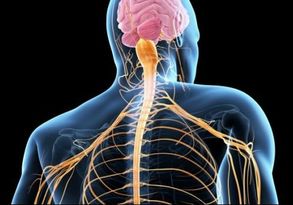 The human body is an amazing collection of synergistic systems controlled by an internal intelligence; called LIFE. Other names used to describe the intelligence in our body have been; innate intelligence, spirit, and soul. The body is designed to be self-functioning and self-healing to a point. We all understand if we lose a finger we are not growing a finger back. We tend to think of healing only when we suffer a cut or broken bone. Healing is actually the constant process of replacing old cells with new cells. To give you an example. Red blood cells, the cells we need to transport oxygen (kind of important) are replaced at a rate of 100 billion cells per day, with one trillion total red blood cells in constant circulation. Wow, that is a lot of healing in a day. No wonder we need to rest at night. Health care is slowly changing from a symptom/disease based model to a function/performance based system in which the structure of the human body is restored and maintained. Correction and maintenance of the structure of the spine, particularity the cervical spine is of paramount importance in the preservation of optimal health. The cervical spine (the neck) is essentially the fuse box for the body with all neurological impulses passing through that structure. Keeping the structure and that area of the spine healthy enhances the body's innate healing capacity. Here's how Chiropractic works: when a cell is injured or damaged (happens from living) in the body it releases a signal that is sent to the brain via the nerve system. The nerve system is protected and housed in the spinal column. Due to normal wear and tear, stress and misalignment of the spine, the signal being sent to the brain can be impeded, meaning: it doesn't get to where in needs to go fast enough. Does this cause a problem? Yes. Healing doesn't happen as it should, and this is a bad thing. Chiropractic's emphasis on the spine gets directly to the problem, allowing the nerve system, housed inside the spine, to communicate with the body better. This concept is vital to understanding how your body works and why Chiropractic is a great choice in caring for it. Get in for your adjustment this week so you can continue to do the things you love. To Our Health, Dr. MJ Wegmann
|
AuthorsDr. MJ Wegmann, Archives
July 2023
Categories
All
|

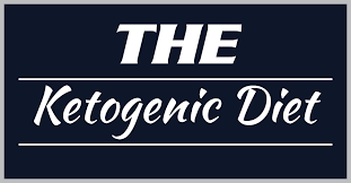

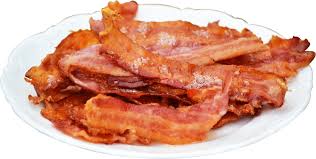
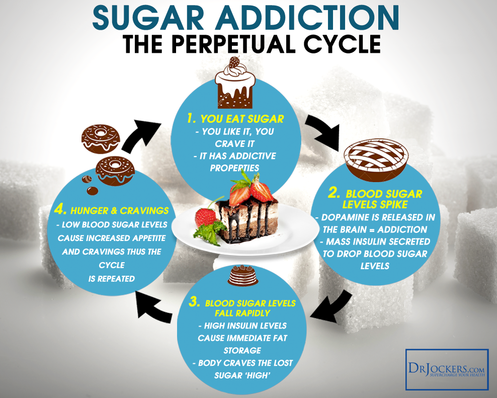
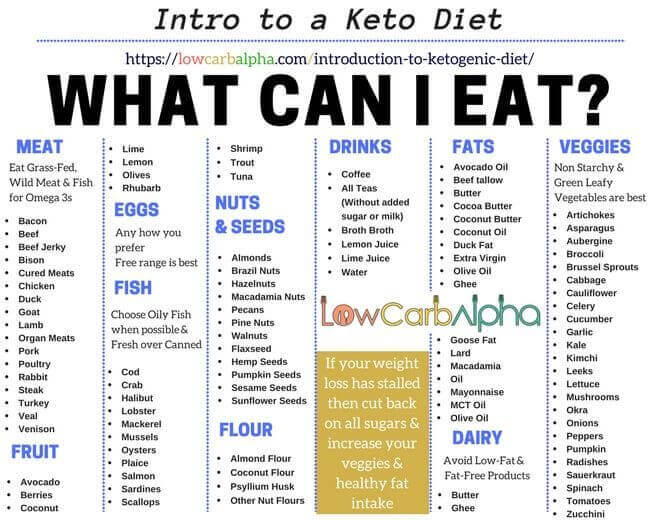
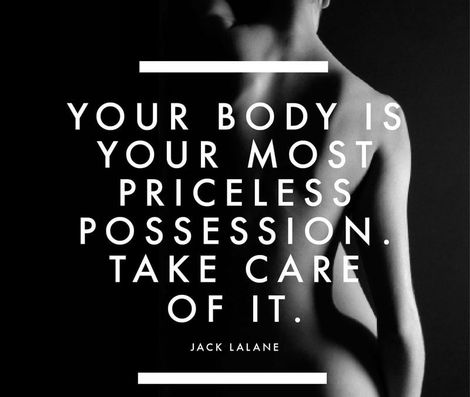
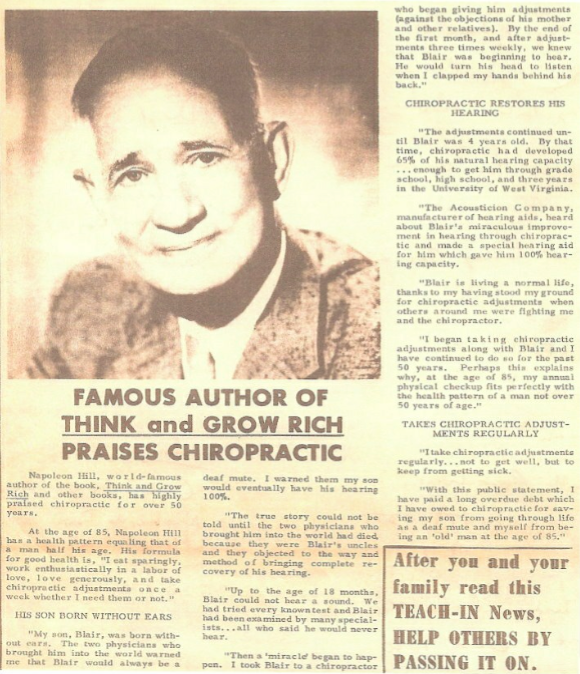
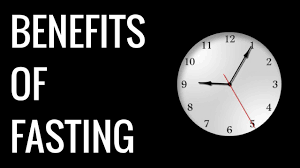

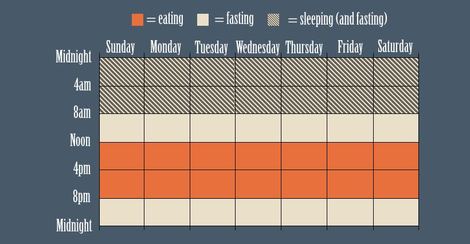
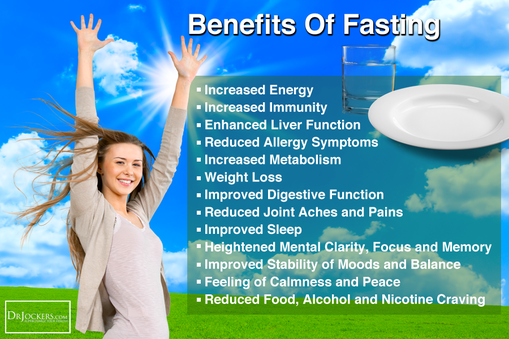
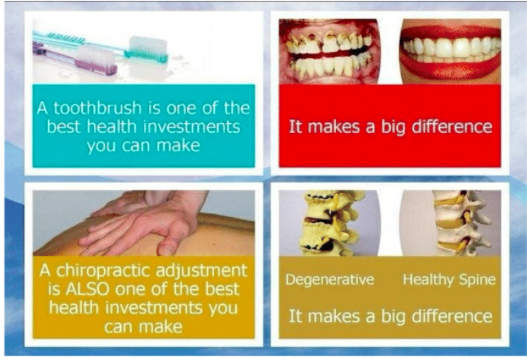
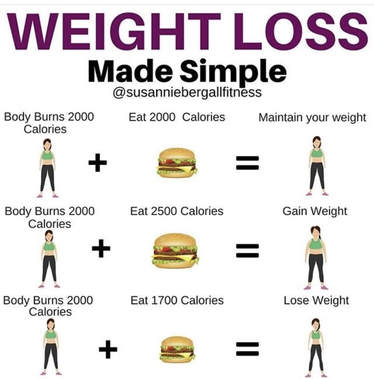
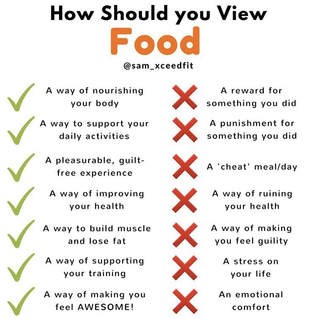
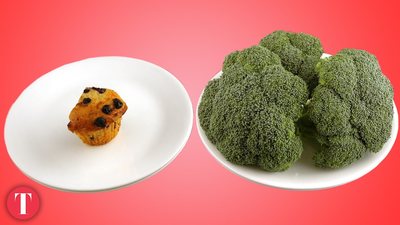
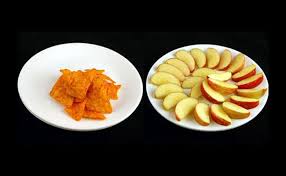
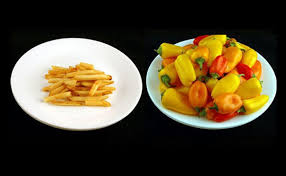
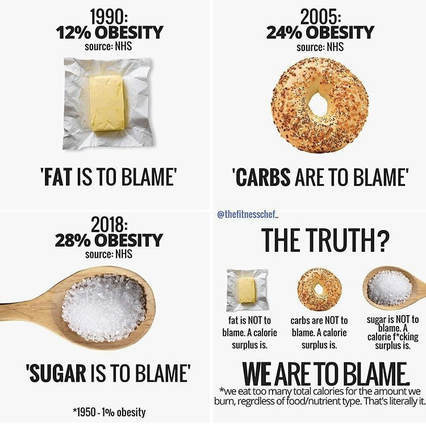
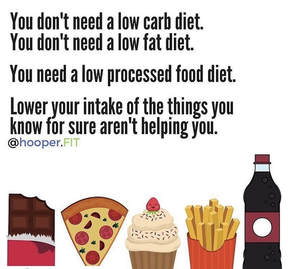


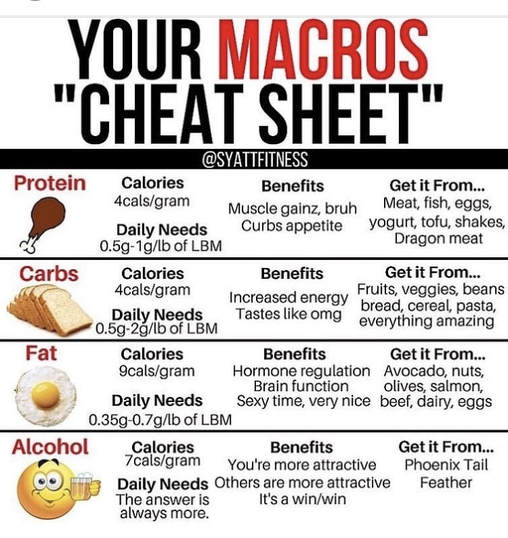
 RSS Feed
RSS Feed